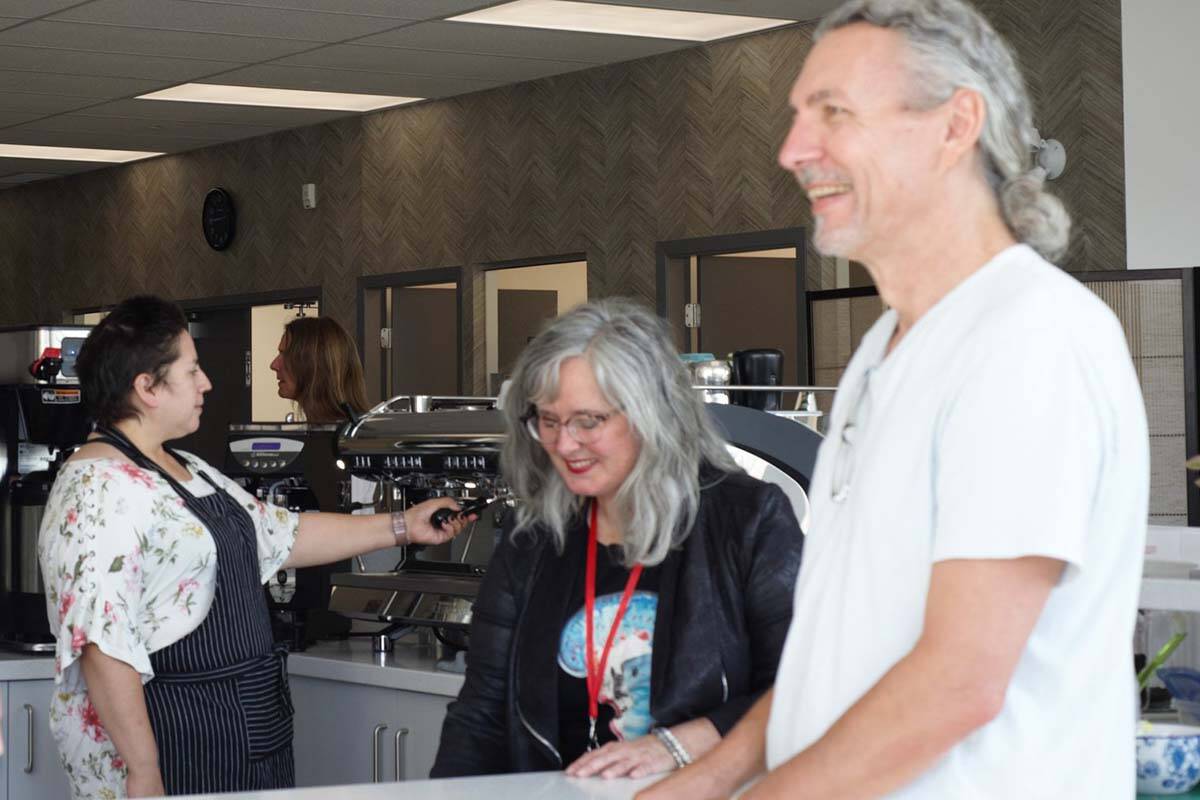By Moira Wyton, Local Journalism Initiative Reporter
Calen Carswel has been in recovery nearly as long as he’s been alive.
The 61-year-old lost his older sister, Eleanor, in a car accident when he was just four. The absence of her love and emotional support, Carswel said, sent him seeking comfort almost everywhere he could find.
Carswel says he turned to sugar and television as a child, and then to alcohol, pornography and cocaine as a young man living in Lillooet, Newfoundland and Vancouver.
For a period of time he was homeless, sleeping during the day in a storage unit near Pacific Station or in his truck, and showering at Vancouver Community College hoping no one noticed he wasn’t a student.
In 2001, he completed a 90-day residential treatment program that helped him stop using cocaine. Ever since, Carswel has been searching for a path to recover from the grief and manage his bipolar disorder diagnosis.
“It feels like a roller coaster,” said Carswel. “Every day is a bit different.”
Sometimes lately, though, his jolting journey glides to a pause at the Recovery Café, run by the non-profit Kettle Society. The first of its kind in Canada, the little hangout opened in East Vancouver in September, offering a physical space for people recovering from substance use, mental health crises, homelessness and grief to gather and heal together.
“It’s like an oasis in a desert,” said Carswel, who joined the program in mid-November. “It’s just what the doctor ordered for me.”
The café already has 50 members from its pop-up launch at a temporary space in the Downtown Eastside earlier this year.
Membership is free and the only expectation is to attend one of four weekly recovery circle discussions each week.
With a permanent space in East Vancouver near Hastings and Clark that launched Friday, the café hopes to grow to support more than 300 people in recovery and run two circles per day.
“There are so many pathways in recovery, and we just want to be another option,” said café manager Damian Murphy in an interview. “We hope to be a space where people can explore that and learn from one another.”
Murphy, who has worked for the Kettle Society for 13 years, says he’s seen the gaps between health care, housing, substance use and mental health services widen and widen.
Even when people do wish to access help for substance use or mental health issues, they often have few supports available after they leave crisis care in a hospital, treatment centre or detox facility, he said.
Recovery cafés aim to help ease these transitions and provide ongoing support to members after a crisis has subsided. The first one was founded in Seattle in 2003.
“It’s community-based support, it’s non-clinical, it’s not threatening,” said Murphy, “which is important especially because for a lot of folks dealing with mental illnesses, there often isn’t a lot of trust with institutions.”
At the Vancouver location, members can get a cup of coffee and a warm meal, participate in recovery circle discussions with peers and take classes in photography and other creative pursuits. There are phones and computers to use, and staff help connect members to outside housing and health resources.
About 30 per cent of members are Indigenous, Murphy said, and the café is aiming to add Indigenous-specific programming in the near future.
Chad de Regt, a former nurse and now mental health worker at the café, says sharing his passion for astrology with members by teaching them to read their birth charts has been healing for him, too.
De Regt was born in South Korea and adopted by a Dutch couple living in Canada. He says he faced racism, religious trauma and homophobia growing up that has stayed with him for many years.
“Astrology is another way of knowing yourself more deeply,” he said in an interview. “My classes and all our other resources here, it’s about helping people accept who they are so they can move forward.”
The program is not religious and doesn’t require total abstinence. Members are asked to have abstained from drugs and alcohol for 24 hours before they come in during opening hours Monday to Friday.
Murphy hopes that the café will become a model for similar spaces across Canada. “Vancouver is often the first, but we don’t want to be the last,” he said.
Carswel used to drop in at the Kettle Society in the Downtown Eastside, where he first heard about the recovery café.
Now he makes the half-hour bus ride from his home in Burnaby to the permanent location nearly every day to spend time with fellow members as he rides the waves of complex grief he is still navigating.
“It gives people in recovery a wider menu of options,” he said. “It’s going to be a good thing for me, and for Vancouver in general, especially this neighbourhood.”

